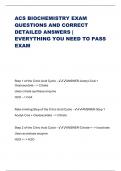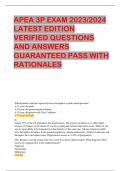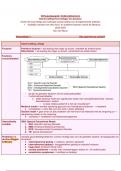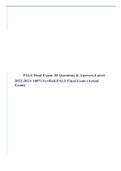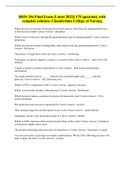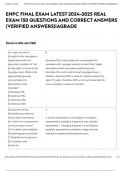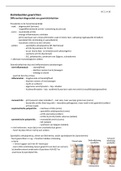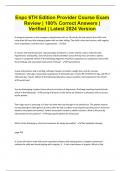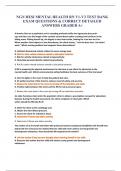Exam (elaborations)
ACS BIOCHEMISTRY EXAM QUESTIONS AND CORRECT DETAILED ANSWERS | EVERYTHING YOU NEED TO PASS EXAM
- Course
- Institution
ACS BIOCHEMISTRY EXAM QUESTIONS AND CORRECT DETAILED ANSWERS | EVERYTHING YOU NEED TO PASS EXAM Step 1 of the Citric Acid Cycle - ANSWER-Acetyl-CoA + Oxaloacetate --> Citrate Uses citrate synthase enzyme H2O --> CoA Rate-limiting Step of the Citric Acid Cycle - ANSWER-Step 1 Acetyl-Coa +...
[Show more]
